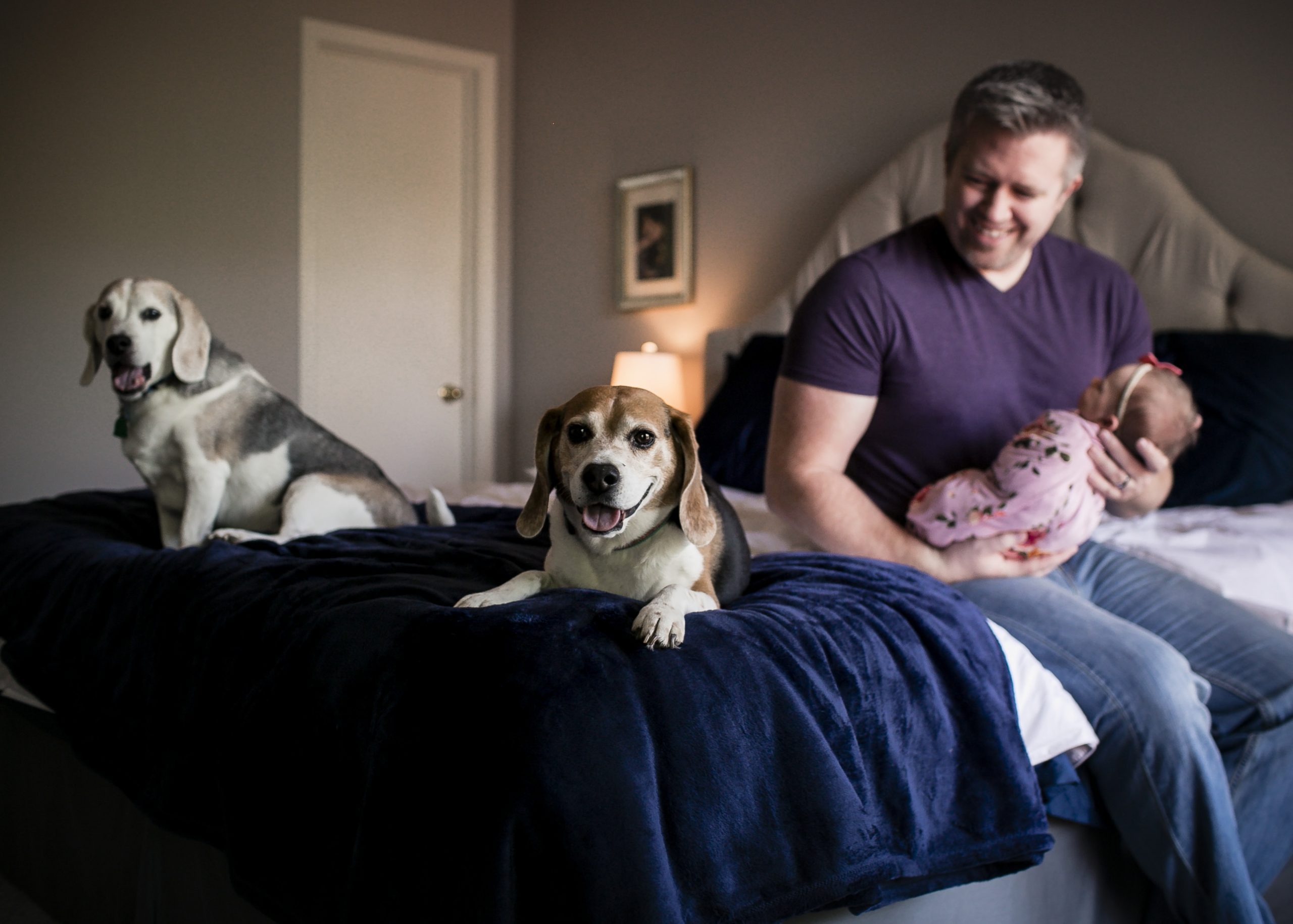 On a beautiful Saturday morning in April 2009, I fell in love in a Wendy’s parking lot in western Missouri. I had seen her picture online and was captivated; I knew I had to meet her. She was just like I imagined she would be: feisty, ornery, and stubborn. Her wrinkles and freckles were so charming, I couldn’t resist.
On a beautiful Saturday morning in April 2009, I fell in love in a Wendy’s parking lot in western Missouri. I had seen her picture online and was captivated; I knew I had to meet her. She was just like I imagined she would be: feisty, ornery, and stubborn. Her wrinkles and freckles were so charming, I couldn’t resist.
Oh – I’m talking about my beagle, Miley, if that part wasn’t clear.
She became my first dog and truly was my first child. She moved with me to Wichita from Kansas City, where I lived alone and learned to navigate my new city. My time in grad school often stressful, and lonely, Miley became my main companion. Often overwhelmed with rotations, board reviews, and exams, Miley remained a constant. She taught me what it’s like to put someone else before yourself. For the first time, somebody else’s needs were my priority. Her walks, potty schedule, and refusal to sleep were truly a crash course into motherhood. When my now husband and I finally got married, Miley joined his dog Rudy, and ruled over their tiny beagle Kingdom, with him happy to oblige her. Years passed, with Miley and Rudy having to learn to share the spotlight when we welcome our son Brody in 2015. Brody was born with a form of dwarfism, and to say our lives were changed overnight would be an understatement. Suddenly, our fur babies took the backseat to Brody’s significant medical needs, but they remained by our sides. Like most new parents, we were novices in every realm. Sprinkle in a medically complex child, and we were stretched to the absolute limit. But Rudy and Miley adjusted, and begrudgingly made room for Brody to share the spotlight.
The years passed, and we learned Miley had cancer. With our time now limited, we decided to make the most of what was left. And in doing so, we were faced with teaching our children about what it means to lose a family member. As Miley’s passing was not unexpected, we had time to plan. We decided it was best to take this time and not sugarcoat the situation. With Brody nearly 5 years old at this point, the decline in Miley’s health was not lost on him. We took her on more walks, gave her extra treats, spoiled her a little more. As Christmas approached, we knew our time was even more limited. We explained this would be her last Christmas with us, and it was important to make it special. We bought some special paw molds and made new ornaments with her paw prints to hang for Christmases to come.
You can find them here: Paw Print Molds
A few weeks later, and we knew our time was coming to an end. Again, instead of sheltering Brody from it, we discussed that Miley would not with us much longer. We gave her warm baths and snuggles. We took her and the kids on a long drive, showing them where we had lived with Miley before they were born, with our trip down memory lane serving as a reminder of how much we had all overcome as a family. And when the final time came to said goodbye, we held her as she fell to her final well deserved sleep. Inevitably, as expected, the questions still came. Where did Miley go? Is she still sick? She’s not coming back? We explained that doggy heaven is a place where Miley’s reign as Queen Bee continues, now free from cancer, and that we will see her again someday. Brody, being a logical boy, accepted this easily. But I believe our approach to her dying helped him prepare and accept this easier. We found the following to be good ways to help prepare for and grieve her loss.
1. Honesty: Kids may not need to know all the nitty gritty details, but they do need to be kept in the loop. Had we not acknowledged Miley’s diagnosis, her death would have come as a shock, and been much harder for Brody to accept.
2. Communication: A dying pet doesn’t need to be hammered into every conversation, but we felt it was important to discuss. Talking together both before and after Miley’s passing removed the stigma of the topic. Death is a part of life, and it’s necessary to acknowledge it.
3. Preparation: We were fortunate to have time to prepare both mentally and physical for her passing. We had the opportunity to do more fun activities, give more snacks, cuddle a little longer. Making mementos with the paw prints and spending time driving together helped Brody process what was happening, and therefore when her passing happened, it didn’t come as a shock.
4. Celebration: Don’t be afraid to remembering and talking about your pet. Saying their name out loud isn’t going to be a reminder they passed- your child hasn’t forgotten that part. Talking about and remembering your pet helps your child cope with their loss. The same is true for any person who passes; not mentioning them doesn’t make the loss any less painful. In addition to talking about your pet, consider doing something in their honor, such as a memory garden or volunteering at the Humane Society.
Helping your children process death and dying may be one of the hardest parts of parenting. But like anything else, experiencing it together can help you grow as a family.
















